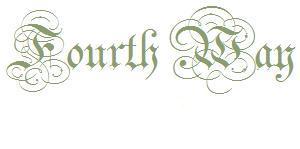I came across a volume in this series called London, by A. N. Wilson in a used bookstore. The series itself intrigued me. They are a series of 'chronicles' published by Modern Library, usually around 200 pages, give or take, on different things in history, by different authors.
It's occured to me if one were to develop an eccentric hobby of collecting everything of something you wouldn't completely waste your time doing it with this series. I mean if you actually also read each one.
Here's a Wikipedia page with an apparently incomplete list of the series.
Each may not be the 'best' source on its particular subject, but, hey, you are just collecting each one and reading it. With a goal to get every one. Eccentric, yes, but better than collecting figurines of donkeys or something.
And a benefit is the series editorial style of the books, coupled with the fact that each has a different author, is such that each would give you, in a light way, little facts and images and events and so on such that would contribute to the base of your already accumulated knowledge. Just some new things to add to the mental furniture. Nothing that will effect spiritual development or give you deep language or anything, but, you know, just an eccentric goal/hobby to pursue...
1.23.2010
1.16.2010
. . .
"So he prayed, and far in the depths they heard him, all the Nereids, Phorcus' chorus, virgin Panopea and Father Portunas himself, with his own mighty hand, drove the racing Scylla swifter than Southern winds or a winging arrow, speeding toward the shore to find her berth in the good deep-water harbor."
- Bk. 5, lines 267-72, Virgil's Aeneid, Robert Fagles trans.
1.11.2010
Feeling there is nothing to do, and the reality of it
The situation we can find ourselves in where we say: "There's nothing to do..." I think can only happen when we get above the necessities of basic survival. Basic survival is obviously something to do. Something to keep one busy. I don't just mean a job one goes to everyday. I mean, when you have to make your own shelter, grow your own food, make your clothes, etc. When those things get easier we realize we don't have anything to do, and instead of seeing it in the context of basic survival having become easier due to culture and civilization we live in we make of it a philosophical thing and we get all existential about it. It's a full belly talking.
But also: when we *do* have free time to pursue higher things, like B Influence, that is something to do as well. Meeting A Influence demands is something to do, but then pursuing B Influence too is something to do. It is when you exhaust, truly exhaust, B Influence that you can *really* feel there is nothing to do.
But then you still have C Influence to contact and engage. But that requires a new level of valuation and effort.
But also: when we *do* have free time to pursue higher things, like B Influence, that is something to do as well. Meeting A Influence demands is something to do, but then pursuing B Influence too is something to do. It is when you exhaust, truly exhaust, B Influence that you can *really* feel there is nothing to do.
But then you still have C Influence to contact and engage. But that requires a new level of valuation and effort.
1.05.2010
Lombardo's Homer
I just read some of Lombardo's Odyssey (last part of book 13), and it reminded me that his translations of Homer are unique. Plain, but you seem to get a closer sense of it all. The conversation between Odysseus and Athena seemed like I hadn't even remembered it.
It just doesn't seem like a waste of time to re-read Homer. The language is real, from a higher source, and powerful. If what is left after B Influence and regeneration by the Word and the Spirit is spiritual warfare and increasing level of being and understanding then Homer still has something to offer.
And its of course in picking up higher (visual, symbolic, metaphoric) language to then be able to see what you can't see now. Even if it's carried in just a detail, or if it's contained in a bigger structure that we can't see all at once as we are going through it. Even if you've picked up most of it from previous readings, I suspect the well is deep enough to have more.
It just doesn't seem like a waste of time to re-read Homer. The language is real, from a higher source, and powerful. If what is left after B Influence and regeneration by the Word and the Spirit is spiritual warfare and increasing level of being and understanding then Homer still has something to offer.
And its of course in picking up higher (visual, symbolic, metaphoric) language to then be able to see what you can't see now. Even if it's carried in just a detail, or if it's contained in a bigger structure that we can't see all at once as we are going through it. Even if you've picked up most of it from previous readings, I suspect the well is deep enough to have more.
Subscribe to:
Posts (Atom)

